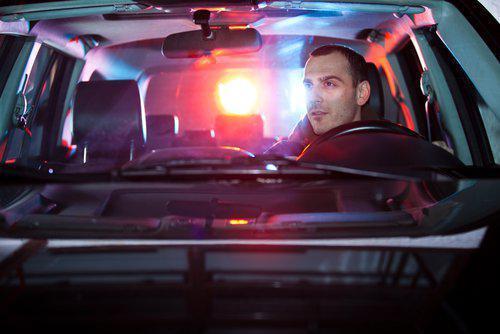Recent Blog Posts
New DNA Collection Law Makes More Work for Wisconsin Law Enforcement
 The advent of DNA evidence has allowed police to solve crimes more easily and with greater certainty than before. Now, new DNA evidence collection requirements are pushing the state to expand its workforce to keep up with the increasing flow of samples that will soon come through state labs. These new requirements may keep Wisconsin citizens safer, but some members of the public are also concerned about privacy rights. In some circumstances, the new collection requirements come into effect before a person is convicted, so the state may end up logging DNA from innocent people.
The advent of DNA evidence has allowed police to solve crimes more easily and with greater certainty than before. Now, new DNA evidence collection requirements are pushing the state to expand its workforce to keep up with the increasing flow of samples that will soon come through state labs. These new requirements may keep Wisconsin citizens safer, but some members of the public are also concerned about privacy rights. In some circumstances, the new collection requirements come into effect before a person is convicted, so the state may end up logging DNA from innocent people.
New Collection Requirements
The new collection requirements for Wisconsin police departments become active on April 1st of next year, and they greatly expand the amount of DNA that the state is required to collect. As it stands, Wisconsin only collects DNA from people who have been convicted, and even then, only people whose convictions were for felonies or sex-related misdemeanors. These new requirements instruct the police to take samples from a broader set of people.
Wisconsin Law Mandates Independent Review of Officer-Involved Deaths
 In the wake of the tragic deaths of Michael Brown and Eric Garner, a Wisconsin law that was passed back in April is getting new scrutiny across the country. The law requires an independent set of professionals to review officer-involved deaths, and many people are viewing it as a necessary check on police power. The law itself came to pass largely due to the efforts of a father, a retired Air Force lieutenant colonel, whose son was shot by a police officer.
In the wake of the tragic deaths of Michael Brown and Eric Garner, a Wisconsin law that was passed back in April is getting new scrutiny across the country. The law requires an independent set of professionals to review officer-involved deaths, and many people are viewing it as a necessary check on police power. The law itself came to pass largely due to the efforts of a father, a retired Air Force lieutenant colonel, whose son was shot by a police officer.
What the Law Requires
The law creates two new bodies, a board for reviewing officer-involved deaths and a special investigative team for each individual death. The board is comprised of five members: a retired or reserve judge, a former police official such as a sheriff or chief of police, an assistant attorney general, a professor from a Wisconsin college or university who has experience in criminal law or justice, and a former district attorney or assistant district attorney with at least 10 years of experience. The members of the board serve for four-year terms and are appointed by the attorney general.
Foiled Crimes: The Crime of Attempt in Wisconsin
 What happens when a murderer forgets to load his or her gun or a mugging is interrupted in the act? The person never succeeded in committing the crime, so he or she cannot actually be charged with it. After all, it would not make sense for a murder victim to be able to testify in a trial. Instead, there is a special crime that can be charged in these circumstances, the crime of attempt.
What happens when a murderer forgets to load his or her gun or a mugging is interrupted in the act? The person never succeeded in committing the crime, so he or she cannot actually be charged with it. After all, it would not make sense for a murder victim to be able to testify in a trial. Instead, there is a special crime that can be charged in these circumstances, the crime of attempt.
Attempt is a catchall crime that can be applied to most other crimes. This is how murder becomes attempted murder and robbery becomes attempted robbery. However, attempt is a thorny crime to enforce. The United States does not punish people for thought crimes, so finding exactly how far along in a crime someone must be before he or she is guilty of attempt is an issue that different states actually vary substantially on.
Welfare Drug Testing and the Constitution
 Governor Walker announced during his recent campaigning that he was planning on introducing drug testing for people who receive welfare or unemployment benefits. The idea behind the plan is to weed out the recipients of government funds who are using those funds to support drug habits. This has led to much debate about whether the policy is a good idea, but it has an even more basic hurdle to clear; it may not be legal. The core of Governor Walker's problem is the Fourth Amendment, which protects people from unreasonable searches. The fact that a person is receiving state benefits likely does not give the government the right to assume they are engaging in criminal activity.
Governor Walker announced during his recent campaigning that he was planning on introducing drug testing for people who receive welfare or unemployment benefits. The idea behind the plan is to weed out the recipients of government funds who are using those funds to support drug habits. This has led to much debate about whether the policy is a good idea, but it has an even more basic hurdle to clear; it may not be legal. The core of Governor Walker's problem is the Fourth Amendment, which protects people from unreasonable searches. The fact that a person is receiving state benefits likely does not give the government the right to assume they are engaging in criminal activity.
Constitutionality of Suspicionless Drug Testing
Lawmakers Consider Changes to John Doe Proceedings
 Ordinarily, criminal prosecutions begin with a crime and a person accused of committing it, but that does not necessarily have to be the case. In fact, under certain circumstances, district attorneys can start legal proceedings without a defendant and possibly without even a crime. These proceedings, known as “John Doe proceedings,” are special investigative processes by which Wisconsin law allows prosecutors trigger to determine if a crime has been committed and who may have committed it. However, after two lengthy John Doe probes into Governor Walker's campaigns and fundraising, some lawmakers are proposing changes to a John Doe process that they think has gotten out of hand.
Ordinarily, criminal prosecutions begin with a crime and a person accused of committing it, but that does not necessarily have to be the case. In fact, under certain circumstances, district attorneys can start legal proceedings without a defendant and possibly without even a crime. These proceedings, known as “John Doe proceedings,” are special investigative processes by which Wisconsin law allows prosecutors trigger to determine if a crime has been committed and who may have committed it. However, after two lengthy John Doe probes into Governor Walker's campaigns and fundraising, some lawmakers are proposing changes to a John Doe process that they think has gotten out of hand.
What John Doe Proceedings Are
John Doe proceedings are part of an old legal process that was originally designed to protect people from baseless prosecutions. In the past, prosecutors could begin prosecutions based on nothing more than suspicions, and many of these prosecutions would eventually turn out to be without merit. In order to put an end to these sorts of overly aggressive prosecutions, legislators introduced the John Doe proceeding.
Supreme Court Rules on Driving Away from Traffic Stop
 A recent Wisconsin Supreme Court decision sheds more light on the complex question of regading a police officer detaining a person. Police stops come in two forms, voluntary and mandatory. If the interaction is voluntary, then the person is free to leave at any time, but if the interaction is mandatory, then the person must stay. These interactions come with important legal differences, such as when a person must be informed of his or her rights and when the police are allowed to detain someone. The Wisconsin Supreme Court recently ruled in Grant County v. Vogt that a driver was free to drive away when a officer tapped on the window of the driver's parked car without turning on his squad car's lights.
A recent Wisconsin Supreme Court decision sheds more light on the complex question of regading a police officer detaining a person. Police stops come in two forms, voluntary and mandatory. If the interaction is voluntary, then the person is free to leave at any time, but if the interaction is mandatory, then the person must stay. These interactions come with important legal differences, such as when a person must be informed of his or her rights and when the police are allowed to detain someone. The Wisconsin Supreme Court recently ruled in Grant County v. Vogt that a driver was free to drive away when a officer tapped on the window of the driver's parked car without turning on his squad car's lights.
The Case
Social Hosts and Dram Shop Liability in Wisconsin
 Social hosts and dram shop owners are two groups of people who often end up bearing responsibility for the intoxicated actions of others. Social hosts are people who have others over to their home or otherwise throw a party and end up getting other people dangerously drunk. Dram shop is an outdated term for bars and other establishments that serve liquor. Many states have laws that hold social hosts or dram shops accountable for the damage done by the people that they served alcohol to. Ordinarily, Wisconsin law provides immunity for people who provided alcohol to others. However, there is an important exception to that immunity: serving alcohol to minors. Social hosts or bars who provide alcohol for underage drinkers may end up facing both criminal penalties and civil liability for their actions.
Social hosts and dram shop owners are two groups of people who often end up bearing responsibility for the intoxicated actions of others. Social hosts are people who have others over to their home or otherwise throw a party and end up getting other people dangerously drunk. Dram shop is an outdated term for bars and other establishments that serve liquor. Many states have laws that hold social hosts or dram shops accountable for the damage done by the people that they served alcohol to. Ordinarily, Wisconsin law provides immunity for people who provided alcohol to others. However, there is an important exception to that immunity: serving alcohol to minors. Social hosts or bars who provide alcohol for underage drinkers may end up facing both criminal penalties and civil liability for their actions.
Traffic Stops: When Police Get the Law Wrong
 Police officers have a fairly large amount of discretion when it comes to making traffic stops, but their discretion is not unlimited. Instead, officers must have a reasonable suspicion of a crime before they can pull someone over. This is not usually an issue because many traffic law violations are quite obvious, like speeding or running a red light. However, there are quite a few traffic laws, and it would be impossible to expect police officers to know all of them by heart. That means that courts need to know what to do when a police officer pulls someone over, believing that he or she is committing a crime, when in fact what he or she is doing is lawful.
Police officers have a fairly large amount of discretion when it comes to making traffic stops, but their discretion is not unlimited. Instead, officers must have a reasonable suspicion of a crime before they can pull someone over. This is not usually an issue because many traffic law violations are quite obvious, like speeding or running a red light. However, there are quite a few traffic laws, and it would be impossible to expect police officers to know all of them by heart. That means that courts need to know what to do when a police officer pulls someone over, believing that he or she is committing a crime, when in fact what he or she is doing is lawful.
Heien v. North Carolina
The U.S. Supreme Court recently handed down a decision in a case, Heien v. North Carolina, where that sort of stop had occurred. A North Carolina police officer observed Heien's car on the road with one broken taillight. The officer used that as justification to stop the car, genuinely believing that driving with a single broken taillight was a violation of North Carolina law.
Corporate Crimes: Charging Companies with Criminal Activity
 Advances in technology have allowed modern corporations to develop a size and reach that are historically unprecedented. This poses problems because corporations are made up of people, and consequently are just as capable as ordinary people are of committing crimes, and charging corporate crimes presents unique considerations. Certainly, some of those can be avoided by charging the managers and directors of companies with crimes, but it is also possible to charge a corporation with a crime, if the prosecution can prove a few extra things. Of course, even when corporations are convicted of a crime, punishing them still presents particular problems.
Advances in technology have allowed modern corporations to develop a size and reach that are historically unprecedented. This poses problems because corporations are made up of people, and consequently are just as capable as ordinary people are of committing crimes, and charging corporate crimes presents unique considerations. Certainly, some of those can be avoided by charging the managers and directors of companies with crimes, but it is also possible to charge a corporation with a crime, if the prosecution can prove a few extra things. Of course, even when corporations are convicted of a crime, punishing them still presents particular problems.
Unique Considerations
Charging a corporation with a crime presents unique issues because companies are legal fictions. They are just legal devices that allow groups of people to coordinate responsibilities and contract together. The only way that they can act through the real world is through their agents, like their directors and employees.
Drones for Aerial Surveillance by Police
 Technology's forward progress is usually reason for celebration. New technologies can cure disease, make work easier, or improve people's quality of life. Still, new technology can also breed controversy, and one of the most controversial pieces of new technology to appear lately has been unmanned aerial vehicles, or drones. Much of the controversy has centered on drones as used by the military, but as the technology has become cheaper, local police forces have begun to invest in drones for aerial surveillance. This raises new concerns about people's privacy and their right to be protected from unreasonable searches under the Fourth Amendment.
Technology's forward progress is usually reason for celebration. New technologies can cure disease, make work easier, or improve people's quality of life. Still, new technology can also breed controversy, and one of the most controversial pieces of new technology to appear lately has been unmanned aerial vehicles, or drones. Much of the controversy has centered on drones as used by the military, but as the technology has become cheaper, local police forces have begun to invest in drones for aerial surveillance. This raises new concerns about people's privacy and their right to be protected from unreasonable searches under the Fourth Amendment.
Aerial Surveillance and the Fourth Amendment
The limits of the rights of citizens under the Fourth Amendment are often determined by cases that go before the U.S. Supreme Court. That Court has yet to hear a case about drone surveillance, but it has heard multiple cases on aerial surveillance and manned aircraft. The cases on searches by manned aircraft have tended to center on cases in which the police flew over a person's land and spotted marijuana plants from above. In response to these cases, the Supreme Court created the Flyover Exception to the Fourth Amendment. The Flyover Exception states that a person cannot have a “reasonable expectation of privacy” with regard to things that are clearly visible to anyone flying over in a plane. Without a reasonable expectation of privacy, the Fourth Amendment does not apply, so the police do not need a warrant to perform aerial surveillance.







